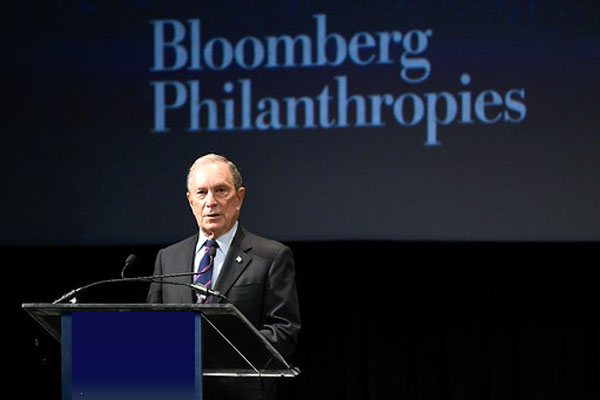Bloomberg Philanthropies has committed another $420 million over four years to the Bloomberg Initiative to Reduce Tobacco Use. This fourth investment brings Bloomberg’s total commitment to tobacco control to more than $1.58 billion since 2005.
The Bloomberg Initiative to Reduce Tobacco Use is helping cities and countries implement measures such as smoke-free public places, banning tobacco advertising, increasing tax on tobacco products, requiring graphic warnings on cigarette packaging and mass-media public awareness campaigns.
Currently, the initiative spans more than 110 low- and middle-income countries (LMICs)—including China and India, which together account for nearly 40 percent of the world’s smokers.
Critics of Bloomberg’s agenda say his policies fuel corruption and drive countless people back to smoking combustible cigarettes. In a release, the American Vapor Manufacturers Association (AVM) stated that despite his “pretensions and self-aggrandizement, the tragic reality is that Michael Bloomberg is bankrolling a prohibition campaign that aims to stigmatize and outlaw the single most effective smoking cessation method ever devised, nicotine vaping.”
The AVM states that it has extensively documented that Bloomberg’s money is used to coerce public officials, pay lobbyists, and even install personnel in public institutions. “It funds front groups that have no genuine following but peddle demonstrable misinformation to the public,” the release states. “The money is even used to bribe journalists through dark money grants to rig the news coverage of this crucial public health issue. It is thoroughly corrupt and happening at a scale that shocks the conscience.
From the new $420 million in funding, $280 million will be aimed at reducing tobacco use in LMICs and $140 million will target reducing e-cigarette use among teenagers in the United States.
“Over the past two decades, we’ve made major progress in reducing tobacco use and the death and disease connected to it, but it continues to take a devastating toll, and it remains the leading cause of preventable death,” said Michael R. Bloomberg, founder of Bloomberg Philanthropies and WHO Global Ambassador for Noncommunicable Diseases and Injuries, in a statement.
“This latest investment will help to spread strategies that have proven so effective at saving lives — including smoke-free laws and advertising restrictions—to more nations and communities around the world.”



















